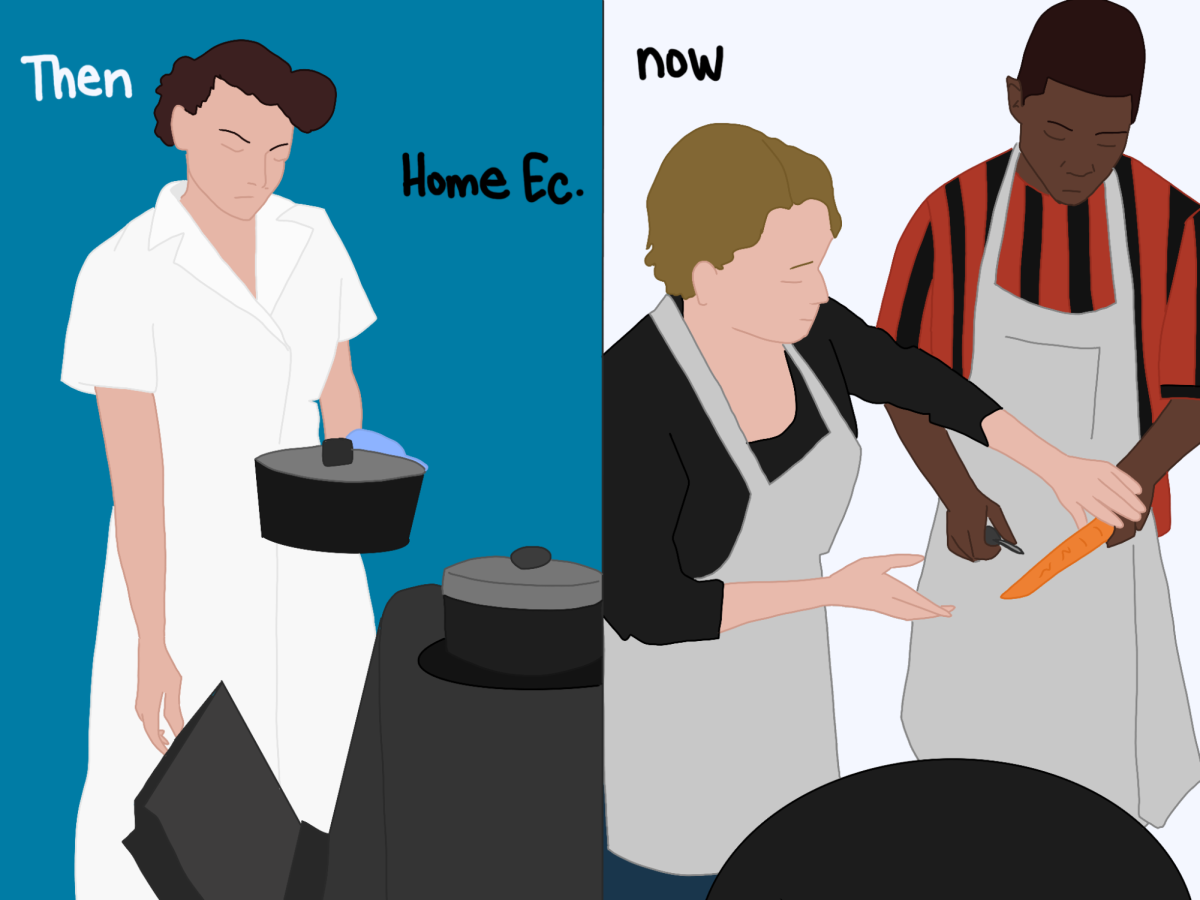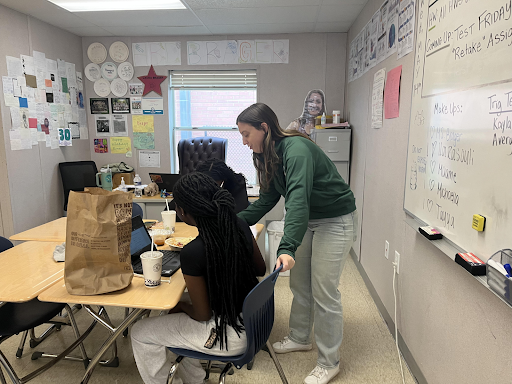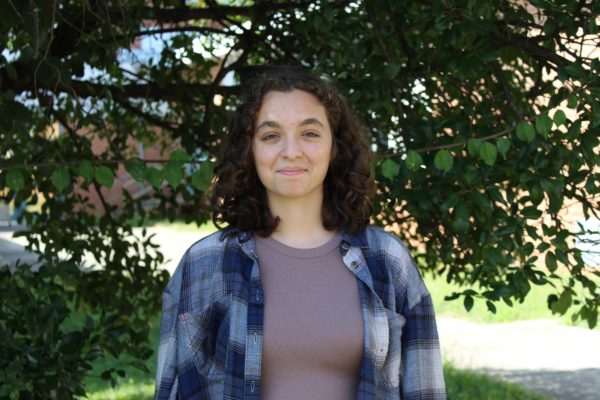Home economics, also known as FACS (Family and Consumer Sciences), was once regarded as an essential component of the high school curriculum. Over the years, however, its influence has faded greatly. According to a February article from Salon, “there are only about 6,000 schools left in the United States that still offer home economics.” The article goes on to argue that now is a perfect time to reverse this trend and restore home economics as a course option nationwide.
This argument is incredibly relevant. With the pervasiveness of digitalization, people, particularly teenagers, are losing their ability to do things on their own. Instead of gaining information on how to complete necessary tasks from school or from other people, we turn to the internet. In some ways, this is incredibly helpful, particularly due to ease of access, but this can often lead to confusion or improper learning. It’s been proven time and time again that certain things are best learned from other people.
Home economics is a necessary addition to the WJ curriculum, as outlined by its plethora of benefits. FACS, according to the American Association of Family & Consumer Sciences, is “the comprehensive body of skills, research, and knowledge that helps people make informed decisions about their well being, relationships, and resources to achieve optimal quality of life. The field represents many areas, including human development, personal and family finance, housing and interior design, food science, nutrition, wellness, textiles and apparel, and consumer issues.” The purpose of FACS, or home economics, is to prepare students for life after high school. The benefits for this are clear, but are particularly prominent when addressing the different paths students take when they graduate. WJ, in 2023, had a graduation rate of 93.7%, and in the most recent data I could find, from 2014, 78.4% of MCPS students enroll in college within 16 months of graduation. Although a large portion of students end up enrolled in college, and most in 4-year colleges—which are widely regarded as “trial runs” for adulthood—many end up in different situations, where the knowledge gained from FACS is even more important.
Ryan Martinez teaches Spanish and French, and is a huge proponent for FACS.
“I came to cooking when I was in my junior year studying abroad in college, and had to serve myself a couple meals during the week,” Martinez said. “I had nowhere to start, [but] I had been in Boy Scouts and had learned a bit about how to do it, but having just some experience [to get] the confidence to do it on my own … I feel like if people don’t have any experience in it, where do you start? It’s not a hard thing to do, but you’ve got to have somebody just show you the basics of it.”
Historically, FACS has been represented in multiple capacities at WJ. My mother, when she was a student back at Tilden in the 90s, took an elective form of the class, through a course named Gourmet Foods. Tilden still offers FACS as part of an elective rotation, although it is not an option at North Bethesda, let alone WJ.
Junior Sasha Rotton went to Tilden and took FACS when she was in 6th grade.
“Taking FACS was a very fun but very new experience for me because I’d never taken a class with that structure before,” Rotton said. “I learned a lot about cooking but also about meal planning and nutrition. I’ve definitely used some of the skills I learned, [and] it was really good practice for cooking for myself. FACS was also a very social class because we cooked in groups.”
FACS also provides social opportunities, through its promotion of collaboration.
“It’s a very collaborative class,” Martinez said. “The students are up, they’re on their feet, they’re working with each other [and] they have a very distinct product at the end of it.”
A component of home economics is still accessible at WJ through Financial Mathematics. Although this course is only taken by a small segment of students, it provides this group with essential life skills. According to the Math Department’s course catalog, the course includes coverage of “individual budgeting, investing, credit, and loans” and “business topics including starting and maintaining a business.”
According to a course catalog found on WJ’s website, Food Trends and Technology was available as a course as recently as 2020-21, as part of the FACS Department, which has seemingly since been reduced into simply the Child Development Department on more recent course bulletins. Child development has its own place within the umbrella of home economics, but only encompasses a small portion of what was once taught. Similarly to Financial Mathematics, child development courses are only taken by a small fraction of the student body.
“Around the corner from where I teach is the room where [Food Trends and Technology] was taught. That was a class taught by a woman named Connie Pokress, who was here for 55 years,” Martinez said.
Pokress retired from teaching in 2021, coinciding with the removal of Food Trends and Technology from the WJ curriculum.
“Ms. Pokress taught the Food Trends class, and the students would do all kinds of things,” Martinez said. “[They would] have baking competitions and learn about nutrition and different types of food. I thought it was a very valuable class for the school because it taught people about nutrition and it taught people about how to cook, and that is a life skill that is so important [and] that a lot of people don’t [learn].”
According to Martinez, the main reason for the course being discontinued was the lack of a teacher to fill Pokress’ position. “It would be great to bring it back, but I think it’s really going to come down to where do you find somebody who has the interest and qualification to do this?” Martinez said.
For Martinez, a major benefit of FACS was an improvement in the school’s atmosphere.
“I really liked it because every now and then, the school would smell really good. When they would bake, the halls would smell so good and I thought it brought a very positive olfactory element,” Martinez said.
Martinez hopes to replicate some of FACS’ positive effects through activities with his own students.
“I try to keep the flame alive a little bit because all of the gear is still there,” Martinez said. “So once a year I like to cook with my students, and we make crepes. We’ll be doing that right before winter break.”









